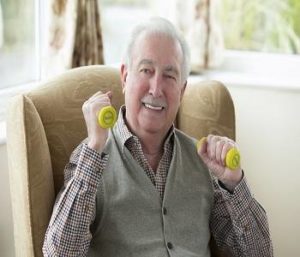How to Improve your Overall Prostate Condition
The condition called Benign Prostatic Hyperplasia (BPH) is also known as an Enlarged Prostate. This is an internal gland condition where its size increases overtime due to several factors. BHP is most common with men in their 50s and up. Prostates can already become enlarged even if the symptoms have not yet appeared. Nevertheless, the most common enlarged prostate symptoms include the presence of blood in the urine, painful urination, and frequent urination.
 One way to minimize the effects of prostate enlargement is by changing the lifestyle, or better yet the diet. Foods rich in essential nutrients are extremely beneficial to the health condition of the prostate by reducing the fats surrounding the prostate or the entire urinary tract. This also reduces the effects of the Benign Prostatic Hyperplasia in the long run.
One way to minimize the effects of prostate enlargement is by changing the lifestyle, or better yet the diet. Foods rich in essential nutrients are extremely beneficial to the health condition of the prostate by reducing the fats surrounding the prostate or the entire urinary tract. This also reduces the effects of the Benign Prostatic Hyperplasia in the long run.
Use Natural Products to Improve the Prostate
By consuming at least two servings of fruits or vegetables everyday, you can improve the overall health of the prostate. Fruits or vegetables filled with lycopene such as: tomato, guava, rosehip, red chilies, grapefruit, and watermelon help this type of diet. The bright color of lycopene in these fruits and vegetables indicates that they are rich in antioxidants, which flushes out toxins. These are the toxins that accumulate and settle in the body and cause the weakening of the internal organs.
Men are urged to reduce their consumption of cholesterol and fats such as those found in dairy products like: whole milk, butter or margarine, cheese, ice cream, etc. Doctors also encourage minimizing red meat consumption as well as all other fatty foods. Studies show that these kinds of food can increase the level of hormone in men to fluctuate, which may cause BPH.
 On the other hand, other type of fats called omega-3 contain fatty acids that can reduce the bad cholesterol, which may develop as fat covering on the prostate. Fresh water fish like sardines, mackerel, and salmon have substantial amounts of omega-3. This also neutralizes the hormone level in the body as well as reduces inflammation.
On the other hand, other type of fats called omega-3 contain fatty acids that can reduce the bad cholesterol, which may develop as fat covering on the prostate. Fresh water fish like sardines, mackerel, and salmon have substantial amounts of omega-3. This also neutralizes the hormone level in the body as well as reduces inflammation.
Some medical experts also suggest that consuming flaxseed oil everyday can also help when omega-3 is scarce, since fresh water fish are not very economical. Also, raw pumpkin seeds with high levels of zinc can also help improve the condition of the prostate as well as the overall health of the body. All these are great additions to the daily menu.
Can a Vegetarian Diet Help Improve the Prostate?
Studies suggest that a lot of soy improves the prostate as well as the overall health of the body. This means that tofu, tempe, and soy milk are great for you in this matter. Soy is rich in isoflavones, a type of phytoestrogen, helpful in balancing the level of hormones in the body. This substance also improves cholesterol levels in the body, minimizing the risk of heart conditions, arthritis, and certain cancers.
By increasing the amount of fiber in the diet, especially from fruits and vegetables, you can flush out toxins and fats from the body. The fiber enhances bowel movement, thus, reducing pressure on the prostate as well.
There many supplement selections in the market today conveniently available to consumers. These supplements also reduce the symptoms of an enlarged prostate in the long run. Progressive Health Inc. has some of these products, beneficial for cases where nutrients are not absorbed properly due to prostate enlargement.

 Subscribe Now
Subscribe Now




 A patient or person with BPH or enlarged prostate notices that he needs to cut his sleep short and go to the restroom to urinate, he should reduce the amount of water or any liquid intake before bedtime. Another idea is to reduce the amount of caffeinated and alcoholic drink consumption.
A patient or person with BPH or enlarged prostate notices that he needs to cut his sleep short and go to the restroom to urinate, he should reduce the amount of water or any liquid intake before bedtime. Another idea is to reduce the amount of caffeinated and alcoholic drink consumption.




